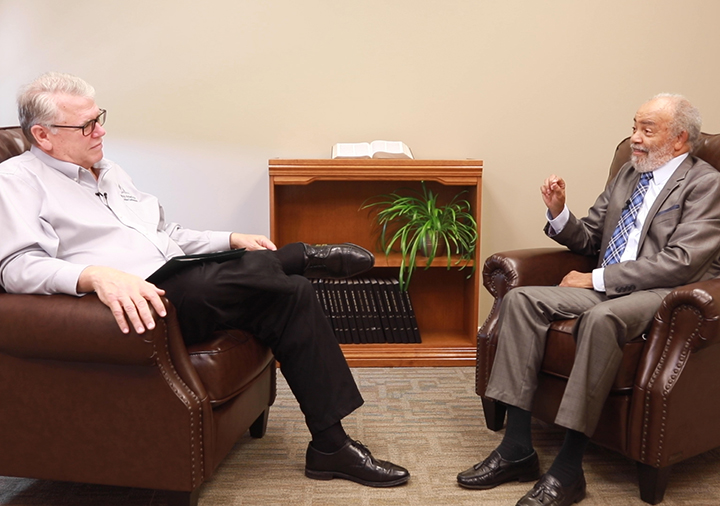Thompson, you are one of the giants of the Adventist Church in that you have spearheaded important ministries for deaf Adventists and other hearing impaired individuals. Tell us how you started out in life.
Atlanta is my home. I grew up there, married there, and my children were born there. My parents instilled in me early the value of education. “You’re a people person,” they told me, “but we want you to be educated because the world is not fair. People are not the same. They won’t treat you equally. Don’t expect them to. When you are educated, people cannot take that from you.”
They also taught me to make sure I treated people kindly. My mother always said, “You do to others as you would want them to do to you.”
My parents were telling the truth. I have found in my workplace, at school, in my social situations—time and time again—I have experienced that. Sometimes when they see me, people will wait for the next elevator, or clutch their purses, or hold on to their children. At restaurants my order often will take longer; it may not come the way I ordered it.
At church when I am the only black person it seems difficult for people to greet me and ask how I am doing. I have even been reminded that there is another church across town. I can come to church and sit in a pew and people move down or completely away from the area.
How does it make you feel when people do things like that, or if they lock their doors when you come around?
I feel very uncomfortable. Where did they get the idea that I would enter their house uninvited?
Many times people choose their actions based on lack of knowledge. They just assume.
How have you seen racism in the Adventist Church?
In my employment, I have been working with the deaf for years. My master’s degree is in special education with an emphasis in deafness and sign language. Most individuals gradually move up in their careers. That did not take place with me.
White attitude in the church is “I want to be the leader and I want you to be the follower. I expect you to wait for me to initiate your role.” Even as a director, I was always told what my responsibilities were, as if I was not intelligent enough to know. That’s a problem many blacks still face.
It’s been 40 years since you started the deaf ministry. Has it gotten any better?
Yes, I believe it has. I feel that the church is becoming more aware of the things they have done, or could have done and haven’t. But I don’t think the church has arrived at the place where what you want for yourself you also want for me. The church is improving, but we still have a lot to do in becoming a family.
When you see things happening in the church that are unkind or uncomfortable, do something to stop it! Don’t allow it to continue.
You know the most beautiful thing about a bouquet of flowers? Variety. There are roses, lilies, pansies. You can have all that. The more diverse, the more beautiful. We should just all accept each other and be grateful for the differences.
What are some of the major barriers that still exist in the church?
The idea that I’m in my own bubble and if something doesn’t involve me I don’t have to be concerned with it. At church we must be concerned about everyone. Wouldn’t it be wonderful if we were all treated kindly, nicely, without any barriers? Wouldn’t it be wonderful to fellowship with everyone and get to know them?
Thompson Kay graduated from Oakwood College (now University) and Ohio State University, and is still called on for assistance by the General Conference Deaf and Possibility Ministries team.
https://www.possibilityministries.org/
Watch the full interview at: https://youtu.be/v6vymjMLu0Y










